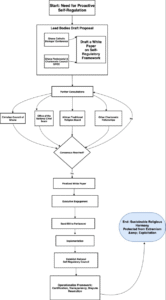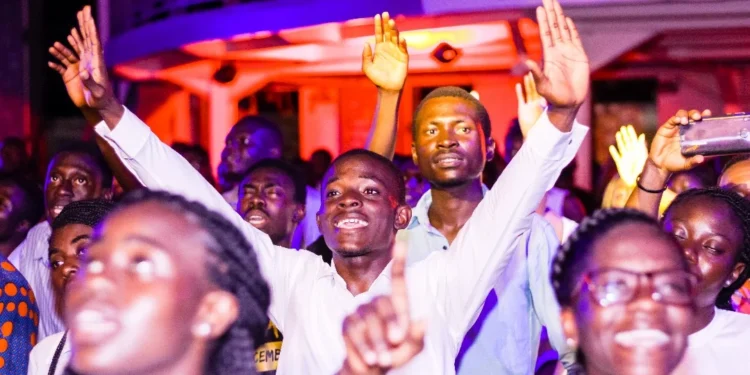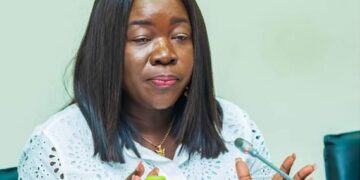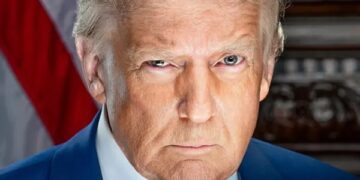ACCRA, Sept 20 (The African Portal) – Ghana is renowned for its vibrant religious life. From the dawn prayers echoing from mosques to the spirited services of Pentecostal churches and the solemn rituals of African Traditional Religion, faith is the bedrock of our communities. Our constitution rightly protects this freedom, making Ghana a beacon of religious harmony in a troubled region.
But history, both global and closer to home, offers a stark warning: this harmony cannot be taken for granted. The path from fervent belief to dangerous extremism, or from spiritual solace to exploitative fraud, is shorter than we think. It is time for Ghana’s religious leaders to proactively safeguard our nation’s spiritual health by embracing a powerful idea: structured self-regulation.
Learning from Our Neighbours: Cautionary Tales and Successful Models
Look across our borders, and the reasons for action become clear. In Rwanda, the horrific memory of churches complicit in the 1994 genocide forced a drastic rethink. Today, the state mandates strict standards for safety, doctrine, and funding. While effective for security, this model comes at a cost: a heavy hand of government control that can stifle the independent voice of the church.
In Ethiopia, the government officially recognises major faiths and works through an Inter-Religious Council to manage the delicate balance between its large Muslim and Christian populations. This model promotes dialogue but risks marginalising smaller groups and can become entangled in politics.
Perhaps the most relevant example is Kenya. After the devastating 2014 Garissa University attack by Al-Shabaab and the exposure of extremist cells within rogue churches, Kenya was forced to act. Its solution was not to ban religion but to strengthen oversight. The government began vetting preachers and auditing religious societies, while powerful umbrella bodies like the National Council of Churches of Kenya (NCCK) provided crucial self-regulation.
Kenya’s lesson is that waiting for a crisis is not an option.
The Gathering Storm: Why Ghana Must Act Now
We need not look far for potential dangers. While we are blessed with relative peace, we are not immune:
The Ghost of Jonestown: The 1978 mass suicide of the Peoples Temple cult in Guyana stands as an eternal warning of how a charismatic leader can manipulate followers to the point of catastrophe.
The Scourge of Extremism: Boko Haram’s reign of terror in Nigeria began as a religious sect. Their ideology has spilled blood across the region, a stark reminder that toxic beliefs recognize no borders.
Domestic Warning Signs: We have seen our own scandals, televangelists preying on the vulnerable with “miracle” scams, and isolated but worrying inter-faith tensions. These are the cracks in our foundation we must repair before they widen.
A Made-in-Ghana Solution: The Path of Proactive Self-Regulation
Ghana does not need a Rwandan-style government crackdown. What it needs is a homegrown, collaborative initiative led by the very institutions that hold the public’s trust.
The proposal is this: The leading religious bodies in Ghana must come together to form a national framework for self-regulation. This should begin with the Ghana Pentecostal and Charismatic Council (GPCC) and the Ghana Catholic Bishops’ Conference, two of the most organised and influential bodies — taking the lead to draft a White Paper.
This document would outline a proposed structure for an umbrella self-regulatory body, comprising representatives from:
• The Ghana Catholic Bishops’ Conference
• The Ghana Pentecostal and Charismatic Council (GPCC)
• The Christian Council of Ghana
• The Office of the National Chief Imam
• The African Traditional Religion Board
• Other recognised charismatic and evangelical fellowships
This national council would be tasked not with policing doctrine, but with upholding shared ethical standards: financial transparency, pastoral training and certification, a code of conduct to prevent exploitation, and mechanisms for internal dispute resolution.

Figure 1Fig.1. Proposed multi-phase framework for religious self-regulation in Ghana, emphasizing collaboration between major faith bodies, government engagement, and legislative action to ensure ethical standards and prevent extremism.
The Way Forward: From Proposal to Law
The process must be deliberate and inclusive:
Drafting the White Paper: The lead bodies draft the proposal, incorporating extensive consultations with all faith groups.
Executive Engagement: Present the consensus proposal to the President. This demonstrates that the religious community is not being forced by the state, but is leading the charge for its own integrity.
Legislative Action: With executive backing, the proposal can be sent to Parliament. The goal would be to pass a Religious Bodies (Regulation) Act that gives legal backing to this self-regulatory framework, empowering it to audit members, handle public complaints, and sanction bad actors without government interference in theological matters.
This model preserves Ghana’s cherished religious freedom while adding a layer of accountability. It protects the faithful from fraud, shields the nation from extremism, and elevates the credibility of religion as a whole.
The sacred trust between Ghana’s religious leaders and their followers is one of our nation’s greatest assets. It is a trust that must be guarded, not just by prayer, but by prudence and proactive action. The time to build a firewall against crisis is now, while the house is still secure.






